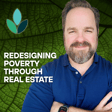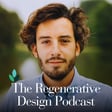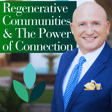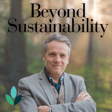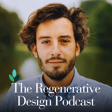
Ep. 11: Sam-Erik Ruttman - The Role of Hospitality in Sustainable Community Development
“The meaning of life for me is to be meaningful to others... My definition of hospitality is, community. You have to embrace the community from day one, and also to make sure that they can earn a living there.”
In this episode, we dive into the intersection of hospitality, sustainability, and community impact with seasoned expert Sam-Erik. With decades of experience, from Vegas to Bali, Sam shares his unique perspective on how hotels and resorts can positively influence local environments and communities. He discusses how sustainable practices in hotel design and construction are becoming crucial and highlights the challenges the industry faces in moving towards regenerative models.
Sam currently serves as the Director of Global Hospitality Development at Studio Puisto, an architecture firm in Finland specializing in sustainable hospitality architecture, urban development, and interior design. He reflects on his work in Bali, where he witnessed how thoughtful design, led by visionary landscape architects, can blend natural beauty with sustainable practices. Sam also talks about his work in Asia and the collaborative efforts in creating eco-friendly hotels that prioritize environmental and social responsibility.
Tune in as Sam offers insights into the future of hospitality and the steps needed to ensure that the industry contributes to both local communities and the environment in a positive, sustainable way.
Key Topics:
- The impact of hospitality on local communities
- Challenges of regenerative hotels and sustainable architecture
- Insights from Sam Erik's global experience
- Sustainable design in Bali and beyond
- The future of eco-friendly hotels
You can learn more about Sam or contact him directly from the following links:
The Social Hotelier on YouTube
Podcast: The Social Hotelier on all major podcast players.
The Social Hotelier on Instagram
Studio Puisto Architects of Finland
Explore these valuable resources to further your journey in regenerative design:
Discover more about Paulownia trees and their sustainable potential at https://www.paulownia-la.com/.
Dive into the Twelve Laws of Nature and unlock the secrets of harmonizing with our planet at https://www.12lawsofnature.com/.
Fulfill your garden aspirations with expert guidance from the Garden of Your Dreams masterclass at https://www.gardenofyourdreams.com/.
Ready to take actionable steps towards your dream garden? Book a complimentary 30-minute training session with Matthieu for immediate results: https://calendly.com/garden-of-your-dreams.
